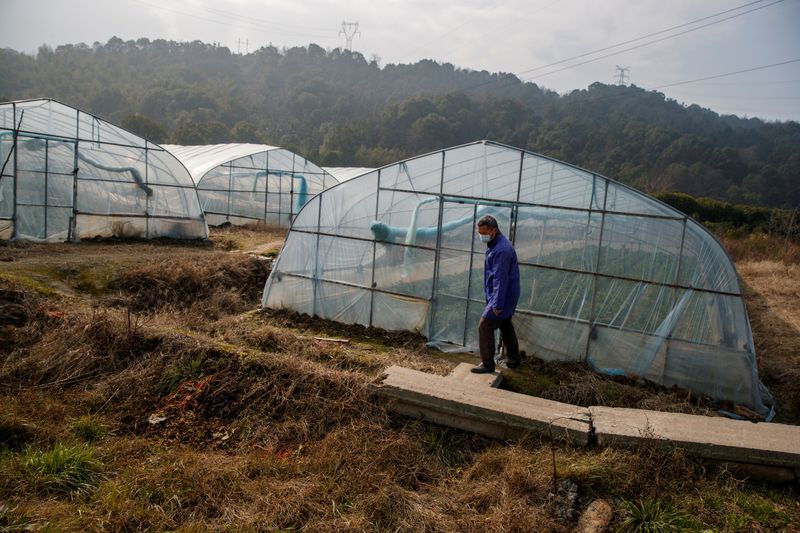This post was originally published on this site
https://i-invdn-com.akamaized.net/trkd-images/LYNXMPEG290PZ_L.jpg
By Emily Chow
SHANGHAI (Reuters) – Many Chinese farmers are shopping online for vital supplies as the spring planting season gets under way and the coronavirus outbreak disrupts traditional supply chains, providing a huge boost to business for e-commerce platforms.
Fertilizers, chemicals, seeds and machinery are traditionally distributed to China’s hundreds of millions of farmers via a network of traders and local distributors.
But the virus, which originated in the central province of Hubei, jammed supply chains across the country through factory closures, residential quarantines and roadblocks.
Chinese e-commerce platform Pinduoduo saw a near 1,000% jump in sales of farming products including seeds, fertilizer and sprinklers in February versus last year.
On Alibaba’s Taobao marketplace, February sales of farming machinery including tillers, seed drills and cultivators rose 78% year-on-year, while purchases of seeds and fertilizers gained over 100%. Animal feed sales notched up 233%, a Taobao spokesperson said.
“We have observed a significant trend that farmers are now relying on their smartphones to buy their equipment online,” said a Pinduoduo spokesperson, adding that more than 4.3 million agricultural producers bought farming essentials from its platform last month.
Yang Tiankai, a 30-year old farmer from Qiubei county in the southern province of Yunnan, first bought cucumber and radish seeds from Pinduoduo two years ago.
“Online purchases are cheaper than (buying from) physical stores. For us in remote areas, deliveries reach us within four to five days,” said Yang, adding that many young farmers in his village bought materials online for the planting season.
China has been encouraging e-commerce penetration in rural areas as part of a poverty alleviation drive in recent years. As of mid-2019, agriculture, forestry, livestock and fishery workers comprised only 8% of China’s internet users, according to a China Statistical Report on Internet Development.
“In every link along the food and agriculture supply chain, digital applications will likely be increasingly adopted and improved,” said Michelle Huang, Rabobank consumer food analyst.
“The lessons learnt from this virus outbreak indicate that supply chain management … will become more important.”
Fusion Media or anyone involved with Fusion Media will not accept any liability for loss or damage as a result of reliance on the information including data, quotes, charts and buy/sell signals contained within this website. Please be fully informed regarding the risks and costs associated with trading the financial markets, it is one of the riskiest investment forms possible.

